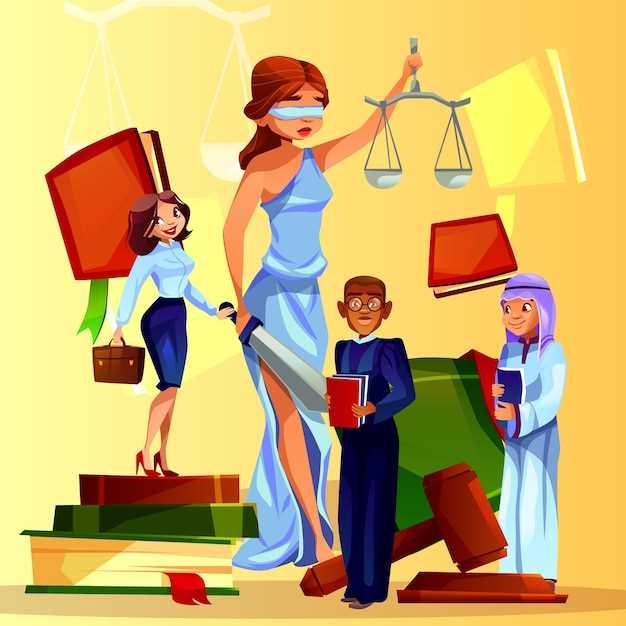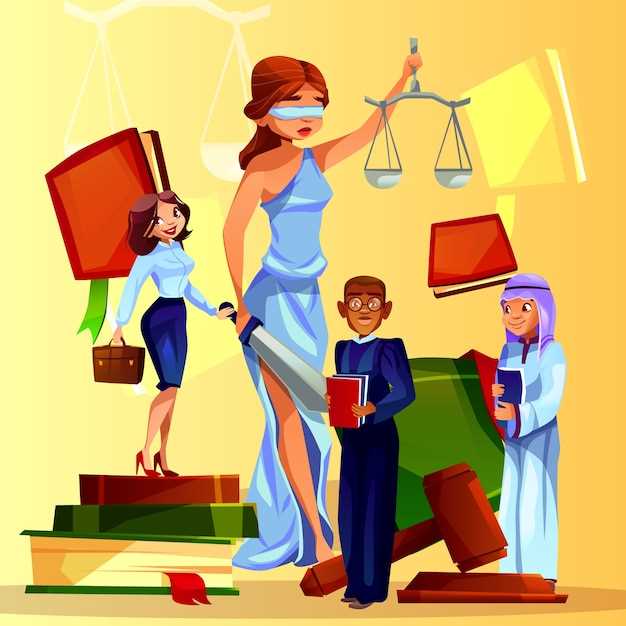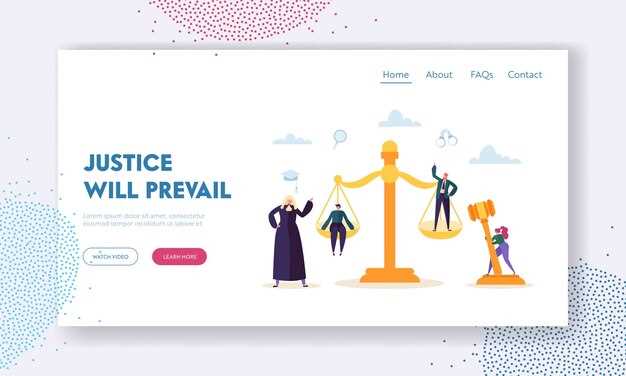

In a world where fairness and impartiality are fundamental principles, the availability of legal recourse plays a pivotal role in upholding these values. The ability to access justice is not merely a privilege, but a fundamental right that should be extended to every individual, regardless of their background or social standing. The significance of ensuring equitability and impartiality in the legal system cannot be overstated, as it serves as the cornerstone of a just society.
Access to justice encompasses more than just the ability to enter a courtroom; it encompasses the right to be heard, understood, and treated fairly throughout the legal process. It is the embodiment of equal opportunity, where individuals are empowered to seek redress for grievances and assert their rights. Without access to justice, the scales of fairness become imbalanced, perpetuating inequality and undermining the very fabric of a democratic society.
Equity and impartiality are not abstract concepts, but rather tangible ideals that can be achieved through the provision of accessible legal mechanisms. This includes the availability of legal aid, the elimination of barriers to entry, and the promotion of legal literacy among the populace. By ensuring that justice is within reach for all, society can foster a culture of accountability, deter wrongdoing, and promote social cohesion.
Moreover, access to justice is not solely a matter of individual rights; it is a collective responsibility that society as a whole must shoulder. When individuals are denied access to justice, the consequences reverberate throughout the community, eroding trust in the legal system and perpetuating a cycle of injustice. By prioritizing equal access to justice, society can cultivate an environment where everyone feels valued, protected, and empowered to seek legal remedies when necessary.
Equal Access to Justice: A Fundamental Right
Ensuring equal access to justice is a fundamental right that lies at the core of a fair and just society. It encompasses the principle that every individual, regardless of their background, should have the same opportunities to seek and obtain justice. This principle is essential for upholding the values of equality, fairness, and the rule of law.
Breaking Down Barriers
Equal access to justice means breaking down barriers that prevent certain individuals or groups from fully participating in the legal system. These barriers can take various forms, such as financial constraints, lack of legal knowledge, language barriers, or discrimination based on race, gender, or socioeconomic status. By addressing these barriers, we can create a more inclusive and equitable justice system.
Providing Legal Aid and Assistance
One crucial aspect of ensuring equal access to justice is the provision of legal aid and assistance to those who cannot afford legal representation. Legal aid programs play a vital role in bridging the gap between individuals with limited resources and the legal system. They provide free or low-cost legal services, advice, and representation, enabling individuals to navigate complex legal processes and protect their rights.
- Legal aid programs help individuals understand their legal rights and responsibilities.
- They assist in preparing legal documents and representing clients in court.
- They offer guidance and support throughout the legal process.
By ensuring access to legal aid, we empower individuals to assert their rights, challenge injustices, and seek redress for grievances, regardless of their financial means.
Equal access to justice is not just a matter of fairness; it is a cornerstone of a democratic society. It promotes social cohesion, strengthens the rule of law, and fosters trust in the legal system. By striving for equal access to justice, we can create a society where everyone has a fair chance to seek and obtain justice, regardless of their circumstances.
Overcoming Barriers: Addressing Socioeconomic Disparities
In the pursuit of a just and equitable society, it is crucial to acknowledge and address the existing disparities that arise from socioeconomic factors. By recognizing the impact of socioeconomic disparities on access to justice, we can work towards creating a fair and inclusive legal system for all individuals, regardless of their financial status.
One of the key challenges in overcoming socioeconomic disparities is the unequal distribution of resources and opportunities. Individuals from lower socioeconomic backgrounds often face limited access to quality education, healthcare, and employment opportunities. These barriers can significantly hinder their ability to navigate the legal system effectively and access justice on an equal footing with their more affluent counterparts.
Moreover, socioeconomic disparities can also manifest in the form of unequal representation and influence within the legal system. Individuals with greater financial resources may have access to better legal representation, which can significantly impact the outcome of their cases. This imbalance further perpetuates the cycle of inequality and undermines the principle of fairness in the pursuit of justice.
To address these disparities, it is essential to implement policies and initiatives that promote equal access to justice for all individuals, regardless of their socioeconomic status. This can include measures such as providing legal aid services, improving the affordability and accessibility of legal representation, and ensuring equal opportunities for education and employment.
- Developing comprehensive legal aid programs that cater to the needs of individuals from lower socioeconomic backgrounds.
- Implementing pro bono initiatives that encourage lawyers to provide free or reduced-cost legal services to those in need.
- Establishing legal clinics in underserved communities to provide legal advice and assistance.
- Advocating for policies that promote equal access to education and employment opportunities, thereby reducing the socioeconomic barriers that hinder access to justice.
- Encouraging diversity and inclusivity within the legal profession to ensure representation and understanding of the diverse needs of all individuals.
By actively addressing socioeconomic disparities and working towards equal access to justice, we can create a legal system that upholds the principles of fairness and equality for all individuals, regardless of their socioeconomic background. Only through these efforts can we truly ensure a just society where everyone has an equal opportunity to seek and receive justice.
Bridging the Gap: Providing Legal Aid and Assistance
Addressing the disparity in access to legal resources and support is crucial in ensuring fairness and equal opportunities for all individuals. This section focuses on the significance of bridging the gap by providing legal aid and assistance to those in need.
By offering legal aid, individuals who may otherwise be unable to afford legal representation can access the necessary resources to navigate the complex legal system. This support helps level the playing field, ensuring that everyone has a fair chance to present their case and seek justice.
Legal aid programs play a vital role in promoting equality by providing assistance to marginalized communities and vulnerable populations. These programs aim to bridge the gap between those who have the means to hire legal representation and those who do not, ensuring that everyone has an equal opportunity to exercise their rights and seek redress.
Furthermore, legal aid services extend beyond just representation in court. They also encompass legal advice, information, and guidance, empowering individuals to make informed decisions and understand their rights. This knowledge empowers individuals to assert their rights and navigate legal processes effectively.
Access to legal aid and assistance is particularly crucial in cases involving issues such as housing, employment, family law, and immigration. These areas often disproportionately affect disadvantaged individuals and communities, making it essential to provide the necessary support to ensure fairness and equality.
Efforts to bridge the gap in access to legal aid and assistance require collaboration between governments, non-profit organizations, and legal professionals. By working together, we can create a system that ensures equal access to justice for all, regardless of their financial means or social status.
In conclusion, providing legal aid and assistance is a fundamental step towards achieving equality and fairness in the justice system. By bridging the gap and offering support to those in need, we can ensure that everyone has an equal opportunity to seek justice and exercise their rights.
Empowering Vulnerable Populations: Access to Justice for Marginalized Groups
In this section, we will explore the significance of providing equal opportunities for justice to individuals and communities who face social exclusion and discrimination. By addressing the unique challenges faced by marginalized groups, we can work towards creating a fair and inclusive legal system that ensures everyone has access to justice.
Understanding Marginalization
Marginalization refers to the process by which certain groups of people are pushed to the fringes of society, often due to factors such as race, ethnicity, gender, disability, or socioeconomic status. These marginalized groups face systemic barriers that limit their access to justice, making it crucial to empower them and ensure their voices are heard.
Challenges Faced by Marginalized Groups
-
Lack of Legal Knowledge: Marginalized groups often have limited awareness of their rights and the legal processes available to them. This knowledge gap can prevent them from seeking justice or advocating for their rights effectively.
-
Discrimination and Bias: Marginalized individuals may encounter prejudice and bias within the legal system, which can hinder their ability to receive fair treatment. Addressing these biases is essential to ensure equal access to justice.
-
Financial Barriers: Many marginalized groups face financial constraints that prevent them from affording legal representation or accessing essential legal services. Overcoming these barriers is crucial to leveling the playing field.
-
Language and Cultural Barriers: Language and cultural differences can create additional obstacles for marginalized groups when navigating the legal system. Providing language interpretation services and culturally sensitive legal support is vital for ensuring their access to justice.
-
Intersectionality: Individuals who belong to multiple marginalized groups may face compounded discrimination and unique challenges. Recognizing and addressing these intersecting identities is essential for achieving justice for all.
By acknowledging and addressing these challenges, we can empower marginalized groups and ensure their access to justice. It is crucial to implement policies and initiatives that promote inclusivity, provide legal education, eliminate biases, and remove financial and cultural barriers. Only through these efforts can we create a legal system that truly upholds equality and fairness for all.
Strengthening the Rule of Law: The Role of Access to Justice
Enhancing the foundation of a just society: Exploring the significance of ensuring equal and fair treatment for all individuals through the facilitation of legal access.
Empowering Individuals through Legal Access
Access to justice plays a pivotal role in empowering individuals to exercise their rights and seek redress for grievances. By providing a fair and accessible legal system, society can ensure that every person, regardless of their background or social status, has the opportunity to assert their rights and have their voices heard. This fosters a sense of empowerment and promotes a more equitable society.
Promoting Accountability and Transparency

Access to justice strengthens the rule of law by promoting accountability and transparency. When individuals have the means to seek legal recourse, it creates a system where no one is above the law. This accountability ensures that those in positions of power are held responsible for their actions, fostering a culture of transparency and fairness. It also serves as a deterrent against corruption and abuse of power, as individuals are aware that they can seek justice if their rights are violated.
| Benefits of Access to Justice | Challenges in Ensuring Access to Justice |
|---|---|
|
|
In conclusion, access to justice plays a crucial role in strengthening the rule of law. It empowers individuals, promotes accountability, and fosters a more equitable society. However, challenges such as lack of legal awareness and financial barriers need to be addressed to ensure that everyone has equal access to justice. By addressing these challenges, society can work towards creating a more just and fair legal system for all.
Promoting Social Cohesion: Access to Justice as a Catalyst for Change
Advancing social unity and fostering a sense of togetherness within a community are crucial elements for societal progress. One powerful catalyst for achieving these goals is ensuring that everyone has equal opportunities to seek justice. By providing fair and accessible avenues for resolving disputes and addressing grievances, access to justice plays a pivotal role in promoting social cohesion and driving positive transformation.
When individuals from all walks of life have the means to seek justice, it fosters a sense of trust and confidence in the legal system. This trust, in turn, strengthens social bonds and encourages cooperation among community members. By ensuring that justice is not only available but also accessible to all, we create an environment where fairness and equality prevail, leading to a more cohesive and harmonious society.
Access to justice serves as a powerful tool for addressing systemic inequalities and promoting inclusivity. It enables marginalized groups to assert their rights, challenge discriminatory practices, and demand accountability from those in power. By empowering individuals to seek redress for injustices, access to justice acts as a catalyst for change, driving social progress and dismantling barriers that hinder social cohesion.
Moreover, when justice is accessible to all, it reinforces the notion that everyone is equal before the law. This principle of equality underpins the foundations of a just society, where no one is above the law and everyone is entitled to the same rights and protections. By upholding this principle, access to justice fosters a sense of belonging and shared responsibility, strengthening social cohesion and promoting a more inclusive and equitable society.
In conclusion, access to justice serves as a catalyst for promoting social cohesion and driving positive change. By ensuring that justice is not only available but also accessible to all members of society, we create an environment where fairness, equality, and inclusivity thrive. By empowering individuals to seek justice, we foster trust, cooperation, and a sense of shared responsibility, ultimately leading to a more cohesive and harmonious society for all.


